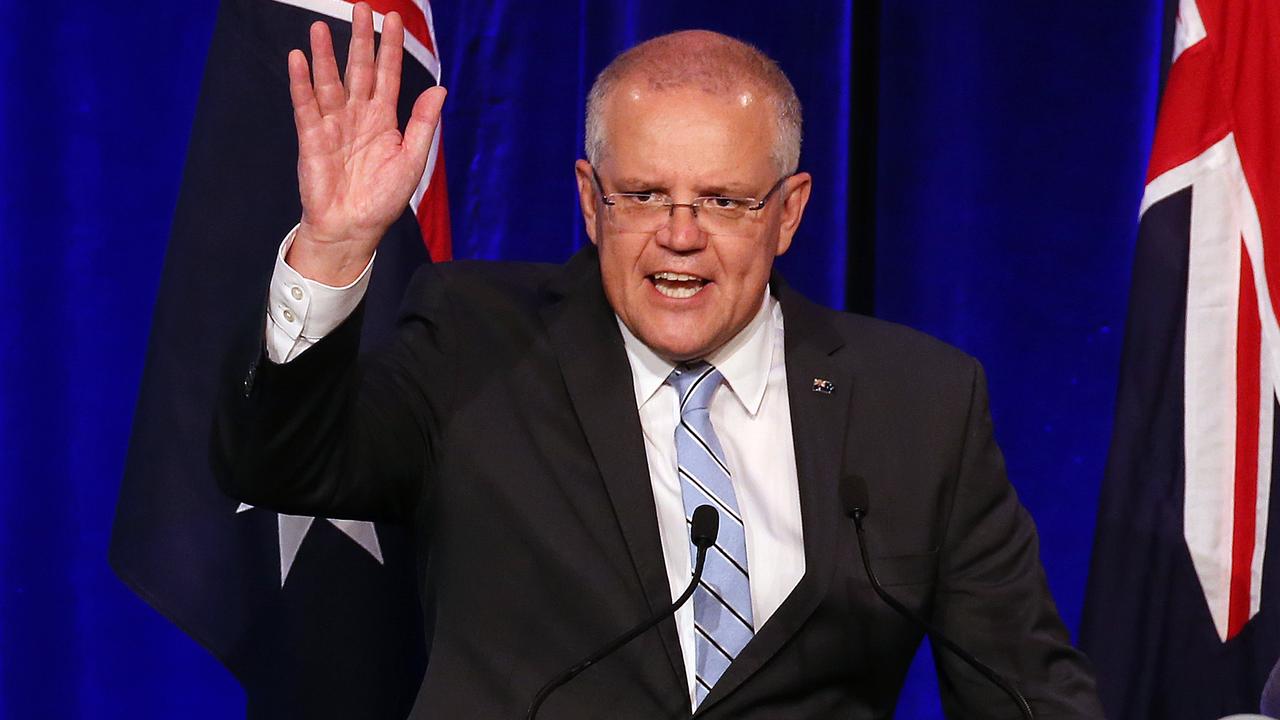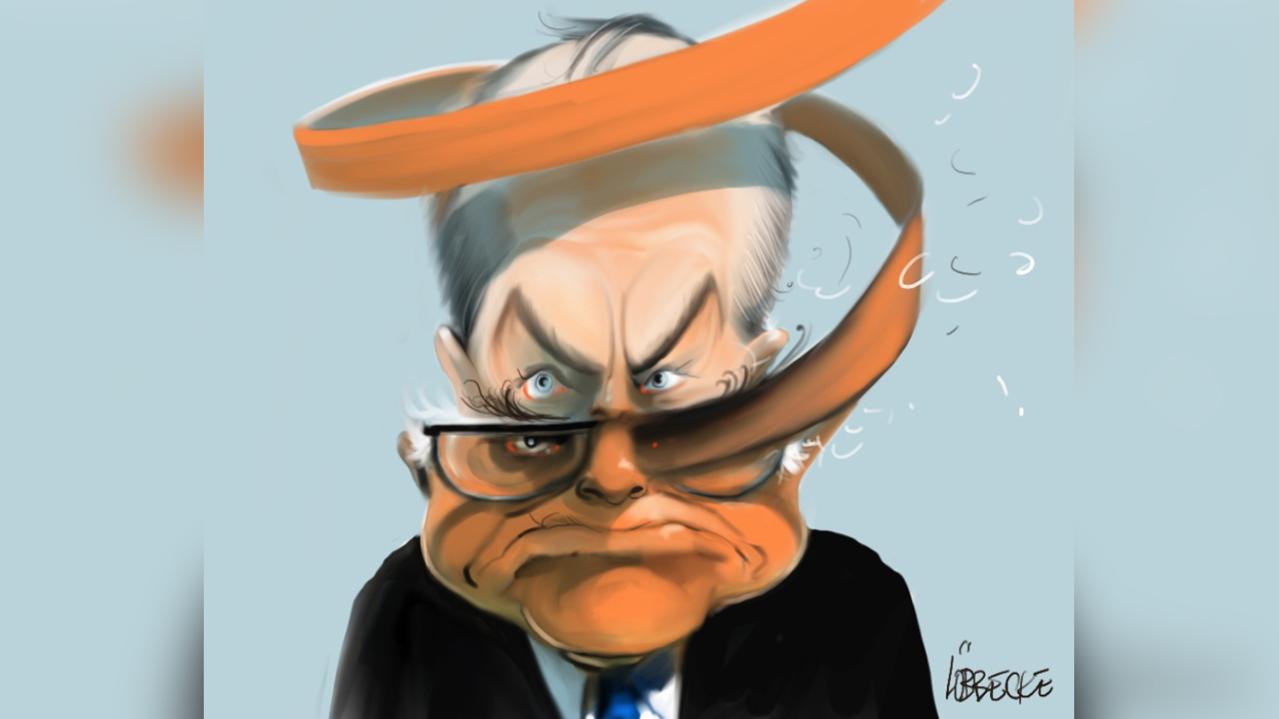Abbott agenda at mercy of loose cannon

AT the end of this month we will start to get a sense of just how dysfunctional or otherwise the new Senate will really be. Clive Palmer’s party has secured three Senate seats, as well as the loyal support of the Motoring Enthusiast Party’s senator-elect Ricky Muir.
Unless Labor or the Greens support government legislation, this bloc of four can comfortably obstruct Tony Abbott’s agenda. It can pick policies to wave through as well as measures it wants to vote down. No wonder Palmer has a certain strut at the moment. His comments about the Prime Minister’s chief of staff during the week were a disgrace on multiple levels. His refusal to apologise reflects an increasing arrogance which will make life for the government very difficult. Put simply Palmer is the loosest of cannons.
Come July 1 the party breakdown of the 76 senators will see the Coalition hold 33 seats, Labor 25 (that’s not a misprint, it is a historically small number), the Greens 10, Palmer United Party three, and one senator each to the Motoring Enthusiast Party, Nick Xenophon, the Democratic Labor Party, Family First and the Liberal Democrats. The tragedy for team Abbott is that Palmer’s electoral success at the last election means that horse trading with the crossbenches has to go through him. It only takes the three PUP senators siding with Labor and the Greens to block legislation. Muir is an insurance policy for Palmer — in case one of his team goes rogue.
Early interviews with PUP senators suggest they will stay loyal to Palmer personally, but there is no certainty about this. The distance between Palmer, who resides in the House of Representatives, and his Senate team might grow over time. Certainly privately Coalition strategists have suggested that they indeed need to “divide and conquer” if they can.
Undoubtedly the antics of team Palmer will create an optical illusion of a circus, an appearance the media will focus on. This is already the case, and makes it difficult for the government to combat criticisms of disorder. Abbott used the messiness of minority government effectively against Julia Gillard. Expect Bill Shorten to do the same in the Senate against Abbott. What we don’t know is whether the circus will just be an unedifying facade to genuine policy negotiations.
Labor and the Greens have signposted significant ideological opposition to large parts of the Coalition’s budget. In conjunction with political opportunism built on populist criticisms of the budget, this leaves Abbott needing more often than not to look elsewhere for support. But Palmer knows that for his party to grow he too needs to eye off populist positioning against the budget.
Expect Palmer’s senators to wave through the repeal of the carbon and mining taxes, but when it comes to fiscal belt tightening Palmer doesn’t need to show conservative tendencies.
While there are potential parallels between Abbott’s situation now and that faced by John Howard in the lead-up to the 1998 election when it comes to poor polling, Palmer is seeking to do what Pauline Hanson couldn’t and build an electorally successful party on the right of the political spectrum.
Palmer has a key advantage Hanson never did — lots and lots of money. He can use his wealth to target campaigns, test policies via focus groups and opinion polling, and flood the airwaves shortly before polling day. He also has a representation One Nation did not, and of course genuine power in the Senate. As voter dealignment sees more and more Australians deciding who to support on the eve of elections, these comparative advantages could see Palmer’s party secure even more senators at the next election, entrenching its third-party status and gaining official party status.
This final point was a key development moment for the Greens and the now defunct Australian Democrats. Official party status gives the leader’s office a dozen extra (well-paid) staffers, larger offices and extra campaign resources. It is worth millions of dollars every year. Palmer might be inclined to bankroll his party for a while, but for PUP to become a medium to long-term force in Australian politics it needs such taxpayer-funded assistance.
It was after the Democrats lost their official party status because of one poor electoral showing in 2004 that their fortunes faded even further. Recovery without resources simply wasn’t possible.
Abbott’s government is doing what it believes it must to fix the budget, but this also opens it up to populist attacks on its Right flank, not just from the Left. Palmer’s ambition to take advantage of this may well dictate the approach his senators take to government legislation, making Senate gridlock the most likely outcome.
The question then becomes does Abbott tolerate his first-term agenda being thwarted, or does he stand up to Palmer, the Greens and Labor by calling an early election? It would be a gamble given the polls, but Abbott’s choice may soon be between surviving on his knees or risking dying on his feet.
IN other news this week, Malcolm Turnbull came under deeply unfair attack from conservative commentators Andrew Bolt and Alan Jones. I can entirely understand why Turnbull didn’t take the insults lying down. Turnbull’s mere presence in the parliament invites suggestions he is undermining Abbott but, short of retiring, he can’t do much about that. Turnbull isn’t engaging in treachery. Bolt and Jones did a significant disservice to the PM by lashing out at Turnbull, creating leadership tensions when none existed, distracting from the budget sales pitch.
Abbott is unpopular, the Liberals’ vote is depressed, and Turnbull has a popularity among the commentariat (not the conservative commentariat, of course). These are facts, but Turnbull’s colleagues aren’t considering him for a return to the leadership, and with the Liberal Party having morphed into a conservative party, they are never likely to.
Turnbull is entirely within his rights to slap Bolt down and stand up to Jones’s bullying, just as Bolt and Jones are within their rights to carry on the way that they have. Conspiracy theories that Abbott or his office might have put Bolt up to writing what he did are ridiculous; Bolt is his own man. But it is true that Abbott goes out of his way to cosy up to Bolt, as he certainly does with Jones.
No doubt Abbott will continue to do so, despite what the pair have written and said about one of the PM’s most senior (and capable) ministers. In this context why should Turnbull “play the team game” and let slide aggressive and pre-emptive assaults from close allies of the PM? If Abbott was playing a team game he would put distance between himself and those commentators who dislike small “l” liberalism in the supposedly broad church that is the Liberal Party. But Abbott won’t do that, because the only members of team Abbott who he really considers part of his flock are fellow conservative ideological travellers. Turnbull isn’t one of them, but that doesn’t mean he is undermining the PM just eight months into government. Bolt and Jones have done a good enough job of that themselves this week.
Peter van Onselen is a professor at the University of Western Australia.


